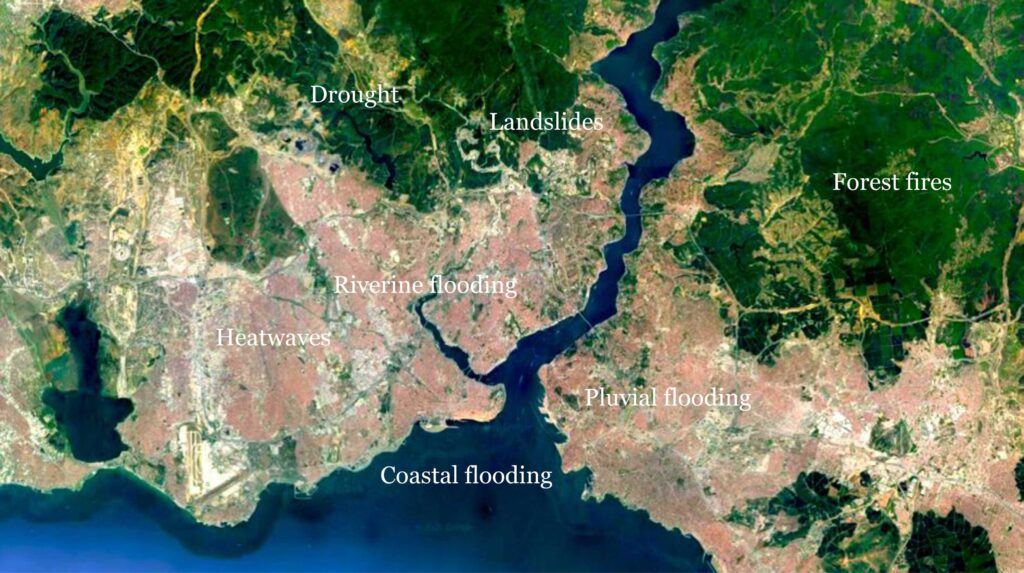This new study conducted a policy analysis to evaluate urban adaptation justice in responding to climate change impacts in İstanbul, Türkiye. Results show there is a distinct lack of targets for realizing urban adaptation justice in policy documents. The authors conclude that the underlying vulnerability of marginalized communities to climate change impacts is not being addressed, and identify urban adaptation justice in authoritarian governance contexts as a critical research gap.

Abstract
Climate change is disproportionately affecting vulnerable communities, increasing existing risks and leading to further global inequalities. Drawing on the concept of urban adaptation justice, we evaluated the inclusion of vulnerable communities in the climate change adaptation planning process of İstanbul, a European coastal megacity with considerable vulnerability to climate change. For this, a policy content analysis structured around four criteria: (i) participation, (ii) capacity enhancement, (iii) governance, and (iv) justice integration into spatial planning, was carried out and supplemented by local expert consultations. Our findings indicate that while the objective of incorporating some aspects of justice in adaptation planning was recognized, there was a distinct lack of specific actions or evaluation tools. The expert consultations largely confirmed these findings, which were then connected to the socio-historical and political context of İstanbul and the wider Turkish region. Key conclusions include the failure of current adaptation policies to adequately consider vulnerabilities arising from a combination of urban marginalization interacting with neoliberal authoritarianism. We identify the need for understanding and integrating equitable climate change adaptation as a key dimension of urban decision-making for future policy-relevant research and practice.
The study was led by David S. Williams İstanbul Policy Center (IPC), and co-authored by Ethemcan Turhan (University of Groningen) who is a a member of MedECC Steering Committee and assisting in the coordination of the Special Report on Environmental change, conflicts, and human migration and mobility to be published by MedECC in 2023. Other contributors are Osman Balaban (Middle East Technical University), Akgün Ilhan (Boğaziçi Üniversitesi), Hande Paker (Bahçeşehir Üniversitesi), Ümit Şahin (Middle East Technical University), Beyza Sarıkoç Yıldırım (Marmara Üniversitesi), , Baran Alp Uncu (Independent Researcher) and Marta Olazabal (Basque Centre for Climate Change (BC3).
David Samuel Williams, Osman Balaban, Akgün Ilhan, Hande Paker, Ümit Şahin, Beyza Sarıkoç Yıldırım, Ethemcan Turhan, Baran Alp Uncu, Marta Olazabal. A policy content analysis for evaluating urban adaptation justice in İstanbul. Environmental Science & Policy. Volume 136, 2022, Pages 476-485. ISSN 1462-9011. https://doi.org/10.1016/j.envsci.2022.07.014.
